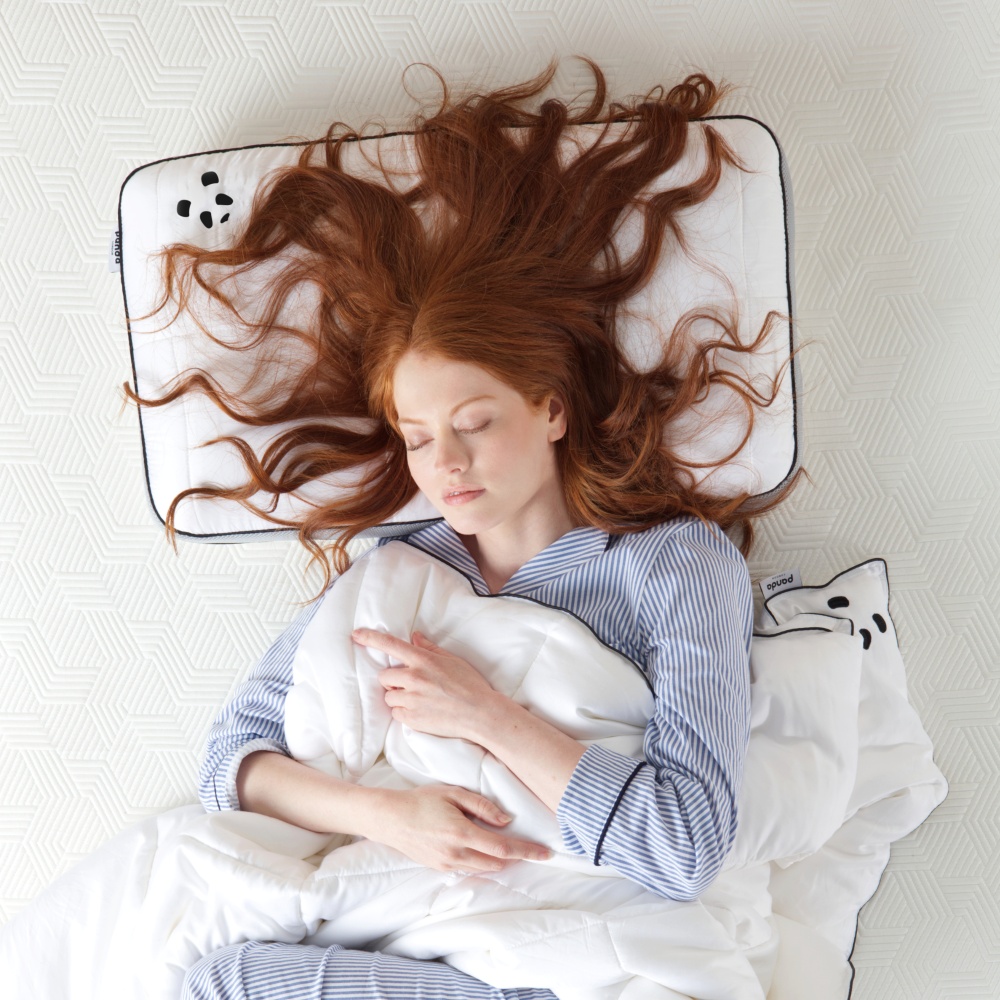Panda London 2022 UK Sleep Survey
Last updated on April 4th, 2023 at 03:49 pm
How is the UK really sleeping?
Ever wonder if your sleeping habits are normal? If everyone else is getting their recommended hours per night? Panda London has done some digging around to find out. Conducting a sleep survey with 300 males and females ranging from 18 to 44 we discovered some surprising data. From how long it takes to fall asleep to what’s keeping us up at night. Read on to find out how the UK is really sleeping.
Drifting-off
Wouldn’t it be a dream to doze off as soon as your head hits the pillow? Lucky are the few that make that dream a reality. According to our study here are how long on average it is taking us to drift off.
| Duration | Percentage |
|---|---|
| Over 30 mins | 41.95% |
| 15-30 mins | 24.98% |
| 5-15 mins | 18.4% |
| 0-5 mins | 14.6% |
Whether it’s too much blue-light before bed or not having the right pillow, it seems many of us find it hard to fall asleep quickly. As seen in our data, only 15% of our sleepers did so in under five minutes. If you find yourself counting one to many sheep, read on to find out our top tips that could help.
Wakey-Wakey
Ever find yourself pulled out of that heavenly slumber and then stuck blinking at the ceiling? When it comes to disrupted sleep, our data revealed it is more common than you might think. Let’s take a look at the leading reasons we discovered for waking up at night.
| Reasons | Percentage |
|---|---|
| Nature Calls | 55.2% |
| Dreams or Nightmares | 28.66% |
| External noise | 22.19% |
| Other reasons | 3.44% |
As you can see, you are not alone. Our data revealed over 80% of sleepers experience disrupted sleep. Needing a trip to the bathroom is the number one cause of waking during the night. For 30% of UK adults, bad dreams can severely impact the quality of their sleep, making mornings a nightmare.
Upgrade weekend lie-ins
Order your Bamboo Mattress Topper
Upgrade weekend lie-ins
Bamboo Mattress Topper
Ssshh! Noise is another cause of night time awakenings. Just under 25% of UK sleepers are disturbed in the night from various noises. This can be worse if you live in a city like London where traffic and noisy residential areas can cause chronic sleep deprivation. Other reasons for waking up in the night ranged from pain, bad breathing, menopause and leg cramps.
The number of times you awake can depend on how deeply you sleep, amongst other reasons. Here is what are data revealed with regards to average awakenings.
| Times | Percentage |
|---|---|
| 0 | 15.56% |
| 1 | 19.91% |
| 2 | 22.27% |
| 3 | 17.73% |
| 4 | 7.16% |
| 5+ | 17.37% |
Tick-Tock
So, the big question. How many hours on average did our respondents clock up throughout the night?
| Hours | Percentage |
|---|---|
| 10+ | 5.22% |
| 8-10 | 12.03% |
| 6-8 | 41.45% |
| 4-6 | 29.66% |
| 4 or less | 11.65% |
According to our data less than 50% of sleepers get those precious 6-8 hours. Nearly 30% of sleepers rely on just 4 to 6 and 10% survive on less than 4.
The reasons behind restless nights vary from not allowing ourselves proper time to unwind to sleeping with wriggly partners. There are many things you can try to optimise your sleep. From ensuring your mattress provides adequate support to some slight tweaks before bed, read on to discover ways that can help you sleep longer.

Quality Control: How do we rate our sleep?
Do you consider your sleep quality low? Relax, you are not alone. Here is what our data revealed on how our respondents rated their shut-eye.
| Rating | Percentage |
|---|---|
| Very good | 11.5% |
| Good | 24.52% |
| Average | 32.8% |
| Poor | 18.59% |
| Very poor | 12.66% |
In fact according to our study around only 12% of sleepers rate their kip as very good. Nearly 20% of UK sleepers regularly experience poor sleep and up to 10% consider theirs to be very poor.
Busy lifestyles and sleeping environments can contribute to our lack of good, quality sleep. The good news is there are plenty of things that can help you get a better shut- eye; let’s take a look.
1. Optimise your comfort zone
From ensuring you have an orthopaedic grade supportive mattress, pressure point- perfect pillow and thermoregulating bedding, making sure bedtime is as comfortable as possible is the first step in improving your sleep quality. This will help you relax and enjoy a deeper, more restorative rest.
2. Unwind… Naturally
Allowing yourself sufficient time between work and bed to switch-off will help when it comes to falling asleep. Avoiding blue-light for two hours before bedtime and indulging in relaxing activities from cooking to taking a bath will give your body and mind time to wind down.
3. Routine magic
While it can be a challenge, trying to get to bed and wake up at the same time every day can make a huge difference to the quality of your sleep. Settle into the magic of a bedtime routine- you will soon be reaping the benefits.
The take-away
If you struggle with your sleep, firstly try and be kind to yourself. Looking at your sleeping environment and beginning to prioritise rest are great ways to take care of your wellbeing. When it comes to bedtime, we are all different, finding what works for you can take time. Give our tips a go to get drifting-off for the delicious slumber you deserve!
Sweet Dreams
